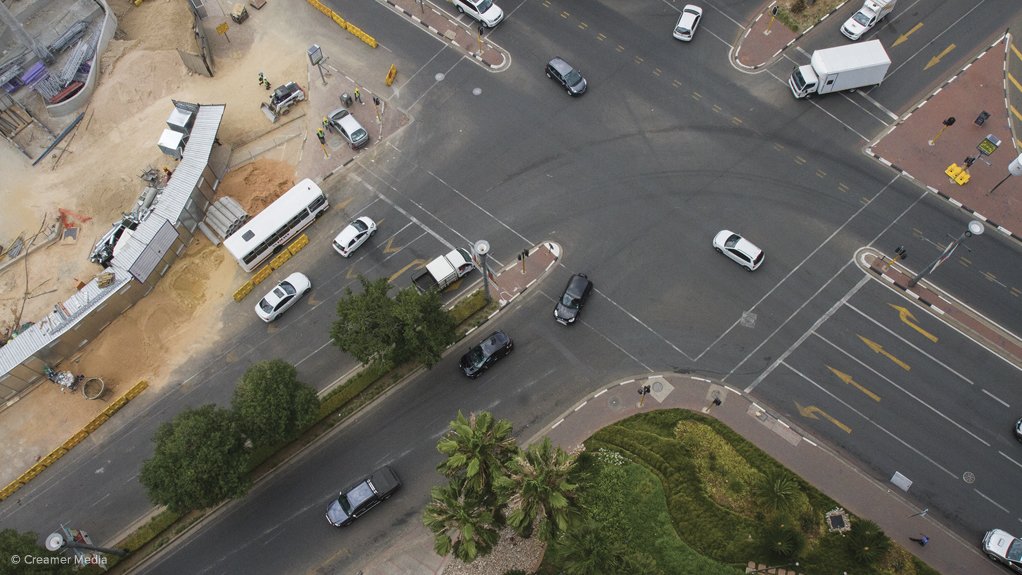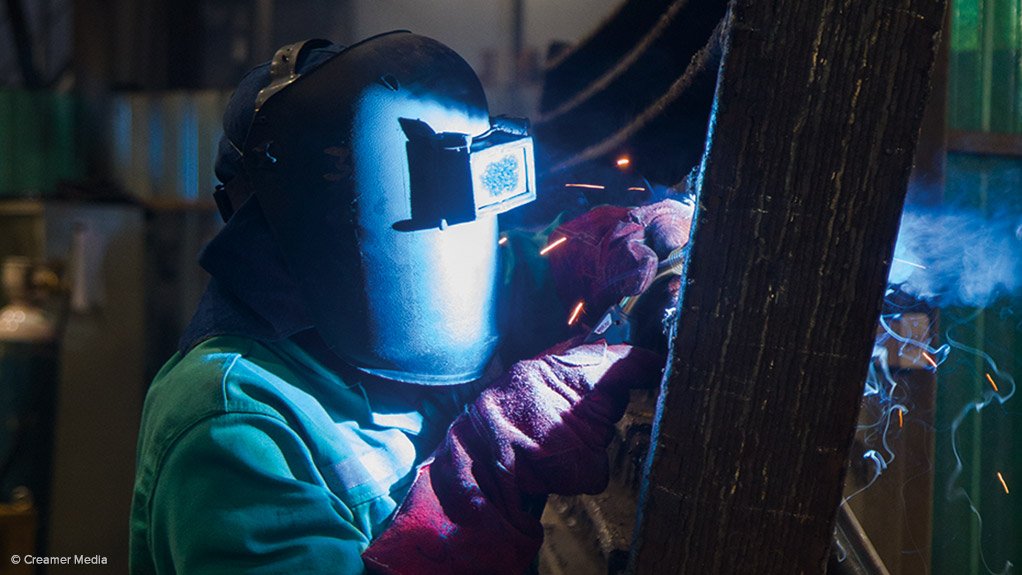Demand for welders decreases as power stations near completion



SAIW executive director Sean Blake explains the challenges and future of welding in South Africa. Camerawork: Victor Moolman. Editing: Lionel da Silva.
FABRICATION CHALLENGES With infrastructure builds in South Africa slowing down the demand for welders has decreased
Photo by Duane Daws
PRACTICAL WELDING The South African Institute of Welding helps learners to further their education in welding through practical training
Photo by Duane Daws
Owing to major projects, such as the Medupi and Kusile power stations, nearing completion, the South African Institute of Welding (SAIW) says fewer welders have enrolled for its training courses in the past year.
“This is a reflection of our declining economy, which has particularly affected the manufacturing and fabrication industries, where welding, nondestructive testing and allied disciplines play such a major role. Also, the lack of infrastructure spend over some years in South Africa further affects the demand for welders,” says SAIW executive director Sean Blake.
He adds that while, from a welding perspective, there is also concern about other important industries – such as the oil and gas and power generation industries – there are still many other industries, like food and beverage, aeronautical, construction and others, that are relatively buoyant and provide good opportunities for welders.
“For example, the food and beverage industry has become one of the sectors that has an ever-increasing demand for welders, while the construction industry, although quite depressed, still provides a plethora of welding jobs,” Blake says.
Last year, about 3 000 students enrolled at the SAIW for training courses, with new programmes and curriculums becoming available. Blake explains that one of the important changes the institute has made is to bring its flagship Welding Inspection courses in line with the International Institute of Welding (IIW) International Welding Inspection Personnel (IWIP) course.
“Our Welding Inspector Levels 1 and 2 have become the industry standard and a highly sought after qualification covering many aspects of both welding technology and welding inspection. In 2010, we made changes to the Welding Inspector Level 1 and 2 courses in order to bring them into line with the IIW IWIP course, which enhances the international acceptability of our programme,” says Blake.
While Level 1 currently is running in the converted form, SAIW will continue offering the original SAIW Welding Inspector Level 2 course until the end of 2018 in order to allow candidates who started this programme to complete it. “Candidates are therefore encouraged to complete their qualification as soon as possible on the old programme as bridging from the old programme to the new IIW IWIP programme will prove challenging,” says Blake.
Another new initiative from the SAIW is a robotics welding programme to be introduced this year. This will be an introduction to welding technology for robot operators, as, in most cases, companies teach the robot operators how to operate the robot but they are not taught to recognise when the robot is not producing good quality welds.
“The programme will train the operator to view the robot from the welding perspective as opposed to just an operator’s perspective”, Blake says.
The training also provides the operators with a focused understanding of what robotic welding is supposed to achieve in terms of welding quality and, “through this, we will fill a gap that exists in our industry”, he says.
Blake concludes that the SAIW is the leading welding institute in Africa and plays an important role in training students from many African countries including Ghana, Nigeria, Botswana, Kenya, Cameroon and others.
Article Enquiry
Email Article
Save Article
Feedback
To advertise email advertising@creamermedia.co.za or click here
Press Office
Announcements
What's On
Subscribe to improve your user experience...
Option 1 (equivalent of R125 a month):
Receive a weekly copy of Creamer Media's Engineering News & Mining Weekly magazine
(print copy for those in South Africa and e-magazine for those outside of South Africa)
Receive daily email newsletters
Access to full search results
Access archive of magazine back copies
Access to Projects in Progress
Access to ONE Research Report of your choice in PDF format
Option 2 (equivalent of R375 a month):
All benefits from Option 1
PLUS
Access to Creamer Media's Research Channel Africa for ALL Research Reports, in PDF format, on various industrial and mining sectors
including Electricity; Water; Energy Transition; Hydrogen; Roads, Rail and Ports; Coal; Gold; Platinum; Battery Metals; etc.
Already a subscriber?
Forgotten your password?
Receive weekly copy of Creamer Media's Engineering News & Mining Weekly magazine (print copy for those in South Africa and e-magazine for those outside of South Africa)
➕
Recieve daily email newsletters
➕
Access to full search results
➕
Access archive of magazine back copies
➕
Access to Projects in Progress
➕
Access to ONE Research Report of your choice in PDF format
RESEARCH CHANNEL AFRICA
R4500 (equivalent of R375 a month)
SUBSCRIBEAll benefits from Option 1
➕
Access to Creamer Media's Research Channel Africa for ALL Research Reports on various industrial and mining sectors, in PDF format, including on:
Electricity
➕
Water
➕
Energy Transition
➕
Hydrogen
➕
Roads, Rail and Ports
➕
Coal
➕
Gold
➕
Platinum
➕
Battery Metals
➕
etc.
Receive all benefits from Option 1 or Option 2 delivered to numerous people at your company
➕
Multiple User names and Passwords for simultaneous log-ins
➕
Intranet integration access to all in your organisation



















